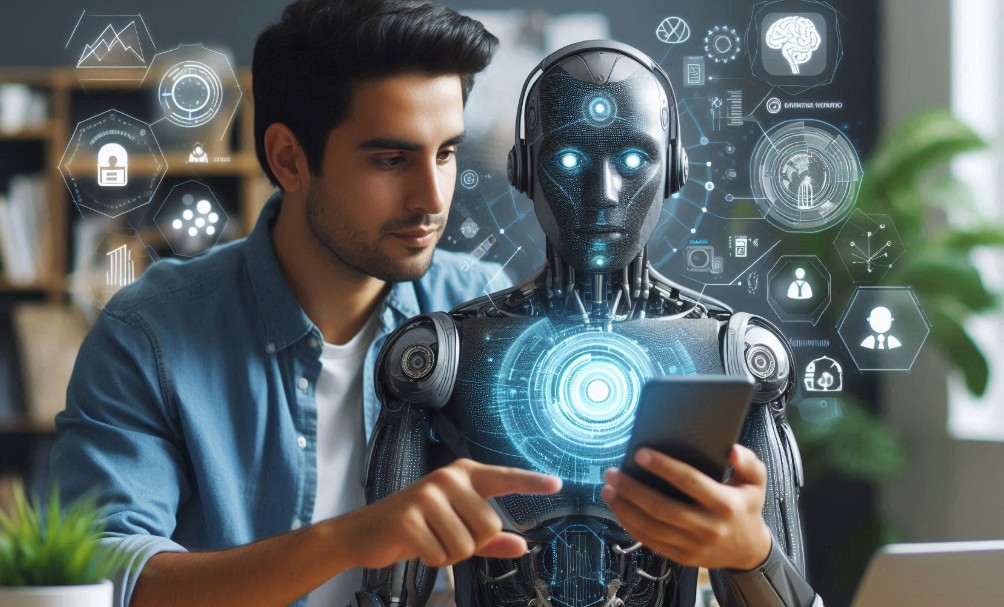In recent years, there has been a significant advancement in the field of Artificial Intelligence (AI) and Augmented Reality (AR). These technologies have become increasingly popular and have the potential to enhance virtual experiences in various fields such as gaming, education, healthcare, and...
AI System Helps People with Autism Develop Social Skills

In recent years, advanced technologies have been increasingly recognized for their potential to improve lives in diverse ways. One of the most promising areas is the use of artificial intelligence to help individuals navigate complex emotional and communicative challenges. By offering tailored tools and interactive experiences, AI provides new opportunities for personal growth, particularly in areas that require enhanced understanding and interaction.
AI-driven platforms are designed to engage users in various exercises that promote emotional recognition, conversation practices, and non-verbal cues interpretation. These tools use data to adjust and personalize learning pathways, ensuring that each individual’s specific needs are met. As a result, technology becomes not just a tool, but a companion that guides its users through nuanced interpersonal situations.
Looking forward, the integration of AI in therapeutic approaches has the potential to transform the way individuals develop interpersonal relationships. By combining machine learning, speech recognition, and real-time feedback, these platforms offer dynamic solutions that were previously unavailable. The growing role of AI in these fields is paving the way for a future where technology and personal development go hand in hand.
How AI Enhances Social Interaction Skills
Advancements in artificial intelligence are transforming the way individuals approach communication and emotional exchanges. By offering interactive tools that simulate real-life scenarios, AI allows users to practice and refine their ability to understand, interpret, and respond to various social cues. These technologies provide a controlled environment where individuals can improve their emotional awareness and conversational abilities at their own pace.
Personalized Learning for Effective Communication
AI platforms tailor exercises and simulations to match the unique needs of each user. By adjusting the difficulty level based on progress, these tools ensure that users remain engaged while gradually enhancing their ability to read emotional expressions, maintain eye contact, and engage in turn-taking during conversations. This individualized approach helps build confidence in communication, providing users with a sense of accomplishment as they master complex social tasks.
Real-Time Feedback and Continuous Improvement
One of the key advantages of AI in improving interaction abilities is its ability to provide instant feedback. Through real-time analysis of facial expressions, speech patterns, and body language, AI can pinpoint areas for improvement and suggest specific actions to refine responses. This continuous feedback loop encourages learning and growth, enabling individuals to correct mistakes and strengthen their skills with each interaction.

Personalized Learning for Autism Spectrum
Tailored learning experiences have become essential for individuals who face challenges in emotional expression and interaction. The ability to create customized paths allows for more effective development, addressing specific needs and preferences. Personalized platforms designed for this purpose are capable of adapting to each individual's progress, ensuring that lessons align with their unique pace and learning style.
Adapting to Individual Needs
AI-powered tools are capable of assessing each user's abilities and adjusting content accordingly. This dynamic approach ensures that exercises become more complex as the user advances, offering the right level of challenge without overwhelming them. By identifying areas that require additional focus, these platforms help users build confidence and improve proficiency over time, resulting in more meaningful engagement in everyday situations.
Building a Supportive Learning Environment
By providing a safe and non-judgmental space, AI platforms allow users to practice new behaviors without fear of failure. This supportive environment fosters a sense of security and encourages risk-taking in social interactions. Over time, individuals can internalize these lessons, applying them confidently in real-world situations and improving their overall ability to connect with others.
The Future of AI in Autism Therapy
As technology continues to evolve, the potential of artificial intelligence in therapeutic practices is expanding. In the coming years, AI is expected to play a pivotal role in shaping how individuals engage with support programs designed to enhance emotional and communicative abilities. The ability to offer highly personalized, data-driven interventions presents an exciting future for those seeking more effective and accessible treatment options.
Advanced Customization and Precision
The next generation of AI tools will offer even greater levels of personalization, using advanced algorithms to predict specific needs and suggest targeted exercises. These innovations will allow for a more tailored experience, ensuring that each individual receives the most effective methods for overcoming particular challenges. With real-time adjustments, the technology will be able to respond instantly to user feedback, making learning both efficient and impactful.
Integration with Human Therapists
While AI will continue to evolve, its most significant impact will come from collaboration with human therapists. AI can support professionals by providing data insights and tracking progress, enabling therapists to make more informed decisions. This integration of human expertise and machine learning will create a comprehensive approach that combines the best of both worlds, offering a more holistic and efficient form of therapy.



